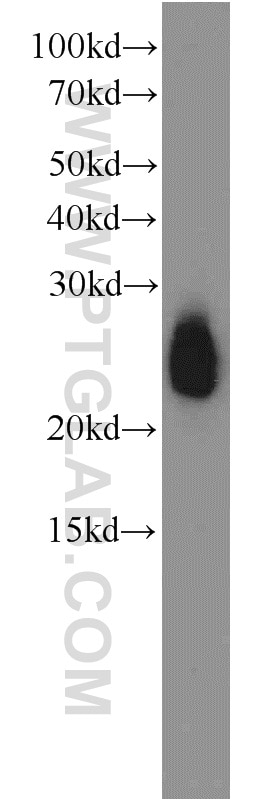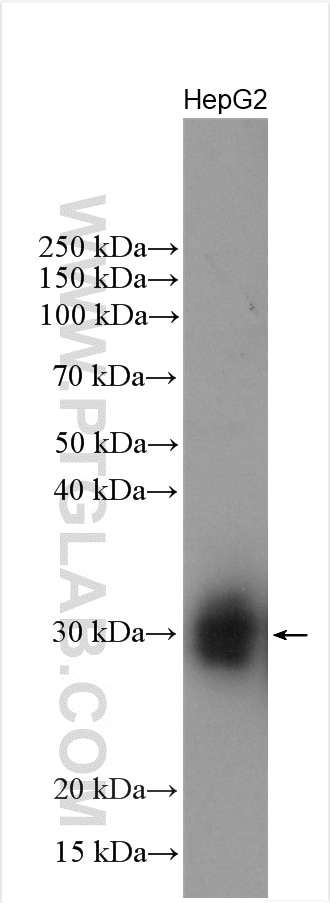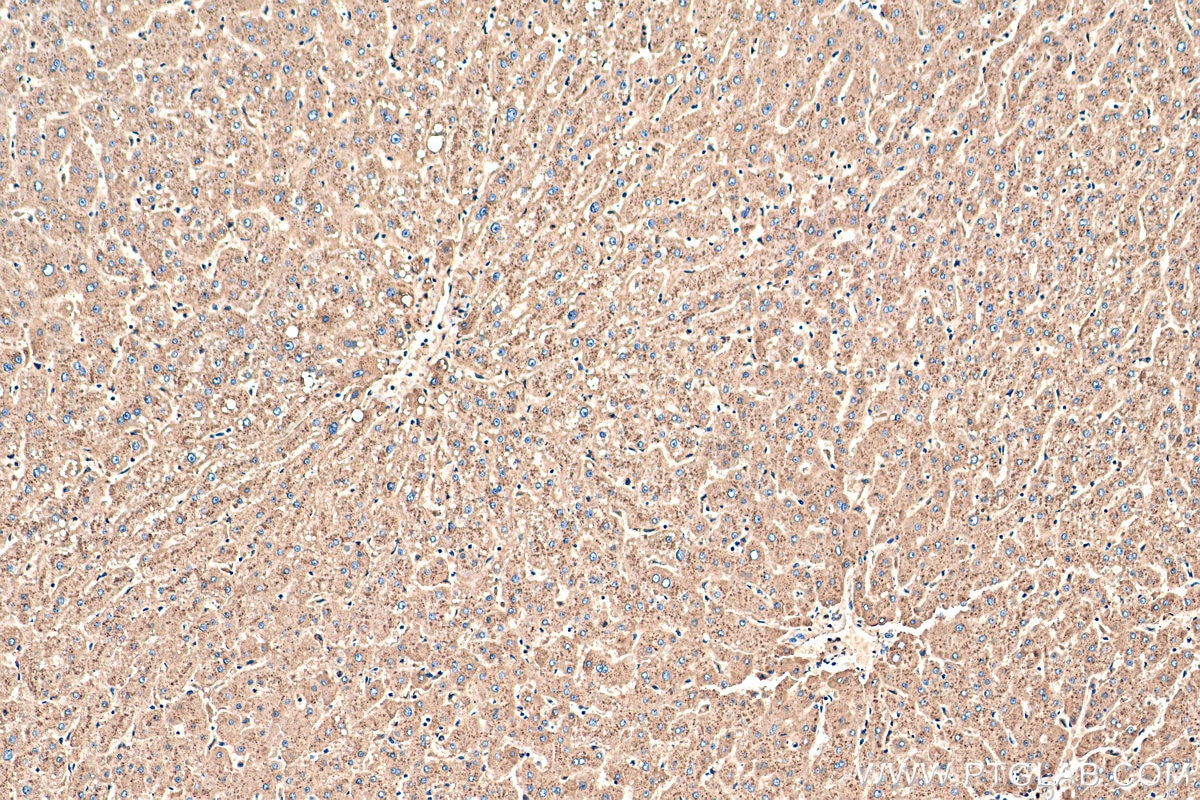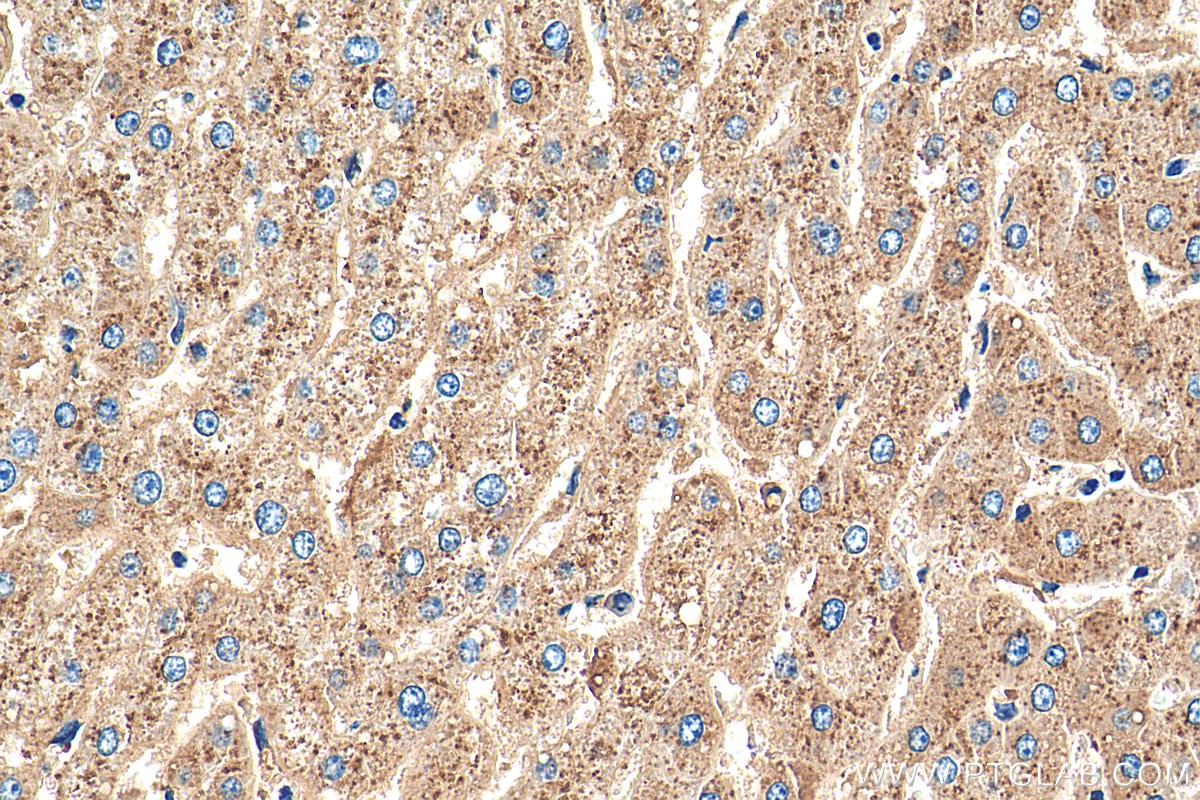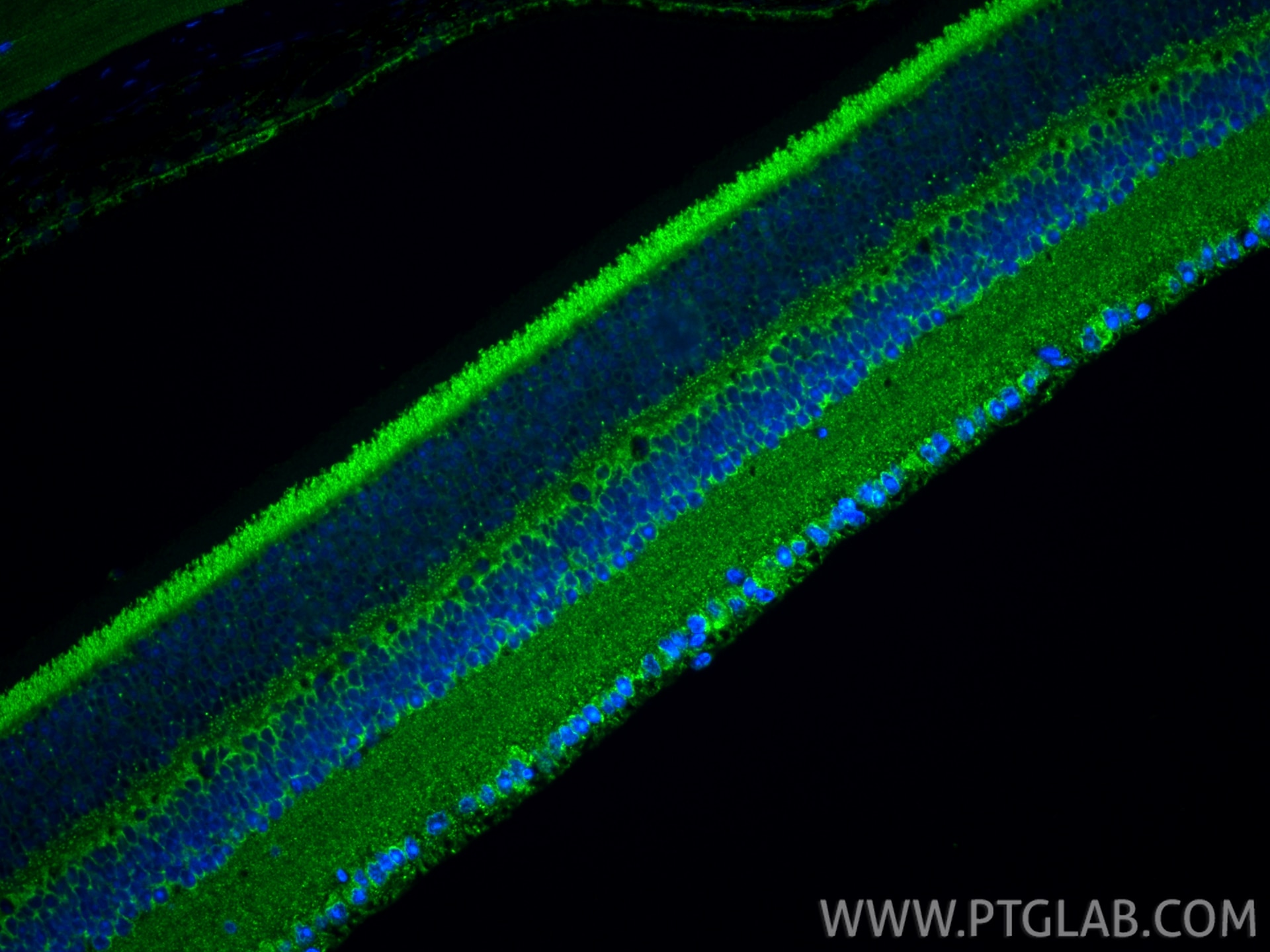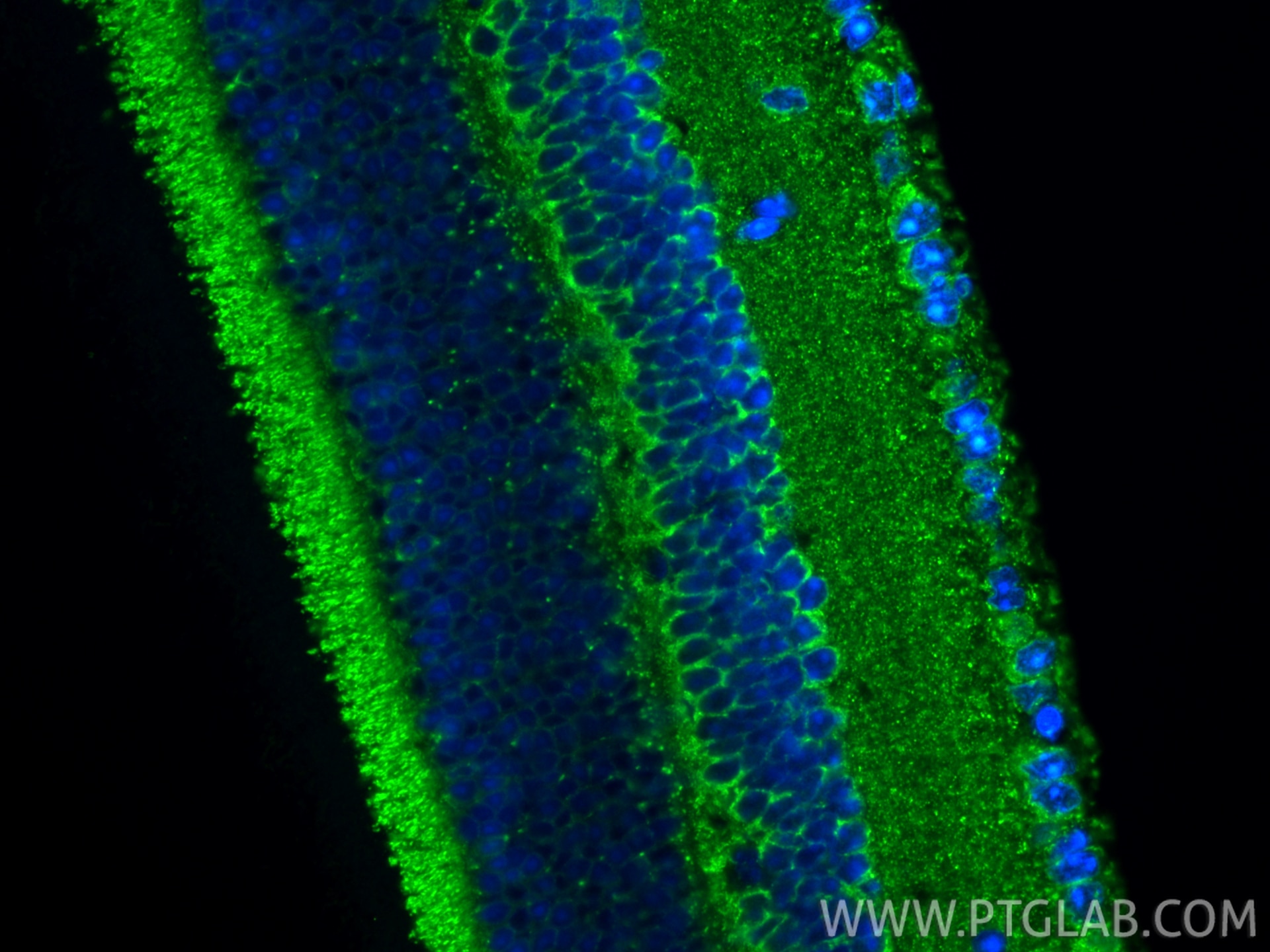Tested Applications
| Positive WB detected in | human serum tissue, HepG2 cells, human plasma |
| Positive IHC detected in | human liver tissue Note: suggested antigen retrieval with TE buffer pH 9.0; (*) Alternatively, antigen retrieval may be performed with citrate buffer pH 6.0 |
| Positive IF-P detected in | mouse eye tissue |
Recommended dilution
| Application | Dilution |
|---|---|
| Western Blot (WB) | WB : 1:800-1:4000 |
| Immunohistochemistry (IHC) | IHC : 1:50-1:500 |
| Immunofluorescence (IF)-P | IF-P : 1:200-1:800 |
| It is recommended that this reagent should be titrated in each testing system to obtain optimal results. | |
| Sample-dependent, Check data in validation data gallery. | |
Published Applications
| KD/KO | See 1 publications below |
| WB | See 3 publications below |
| IHC | See 5 publications below |
Product Information
10520-1-AP targets APOD in WB, IHC, IF-P, ELISA applications and shows reactivity with human samples.
| Tested Reactivity | human |
| Cited Reactivity | human |
| Host / Isotype | Rabbit / IgG |
| Class | Polyclonal |
| Type | Antibody |
| Immunogen |
CatNo: Ag0812 Product name: Recombinant human APOD protein Source: e coli.-derived, PGEX-4T Tag: GST Domain: 15-189 aa of BC007402 Sequence: FGAAEGQAFHLGKCPNPPVQENFDVNKYLGRWYEIEKIPTTFENGRCIQANYSLMENGKIKVLNQELRADGTVNQIEGEATPVNLTEPAKLEVKFSWFMPSAPYWILATDYENYALVYSCTCIIQLFHVDFAWILARNPNLPPETVDSLKNILTSNNIDVKKMTVTDQVNCPKLS Predict reactive species |
| Full Name | apolipoprotein D |
| Calculated Molecular Weight | 33 kDa |
| Observed Molecular Weight | 21-33 kDa |
| GenBank Accession Number | BC007402 |
| Gene Symbol | APOD |
| Gene ID (NCBI) | 347 |
| RRID | AB_2057977 |
| Conjugate | Unconjugated |
| Form | Liquid |
| Purification Method | Antigen affinity purification |
| UNIPROT ID | P05090 |
| Storage Buffer | PBS with 0.02% sodium azide and 50% glycerol, pH 7.3. |
| Storage Conditions | Store at -20°C. Stable for one year after shipment. Aliquoting is unnecessary for -20oC storage. 20ul sizes contain 0.1% BSA. |
Background Information
Apolipoprotein D (ApoD) is a member of the lipocalin superfamily of ligand transporters, and has been implicated in the transport of small hydrophobic molecules. ApoD is also a component of plasma high-density lipoproteins (HDL). Alteration of ApoD expression has been linked to multiple neurological disorders, including Alzheimer's disease.
Protocols
| Product Specific Protocols | |
|---|---|
| IF protocol for APOD antibody 10520-1-AP | Download protocol |
| IHC protocol for APOD antibody 10520-1-AP | Download protocol |
| WB protocol for APOD antibody 10520-1-AP | Download protocol |
| Standard Protocols | |
|---|---|
| Click here to view our Standard Protocols |
Publications
| Species | Application | Title |
|---|---|---|
Neuropathol Appl Neurobiol Apolipoprotein D: a potential biomarker for cerebral amyloid angiopathy. | ||
Front Immunol Development and validation of an ARID1A-related immune genes risk model in evaluating prognosis and immune therapeutic efficacy for gastric cancer patients: a translational study | ||
Clin Proteomics Integration of transcriptome and proteome profiles in placenta accreta reveals trophoblast over-migration as the underlying pathogenesis.
| ||
Biomarkers Apolipoprotein D as a novel marker in human end-stage heart failure: a preliminary study. | ||
Comput Struct Biotechnol J Uncovering the potential of APOD as a biomarker in gastric cancer: A retrospective and multi-center study | ||
Front Immunol A novel necroptosis-related gene index for predicting prognosis and a cold tumor immune microenvironment in stomach adenocarcinoma |

